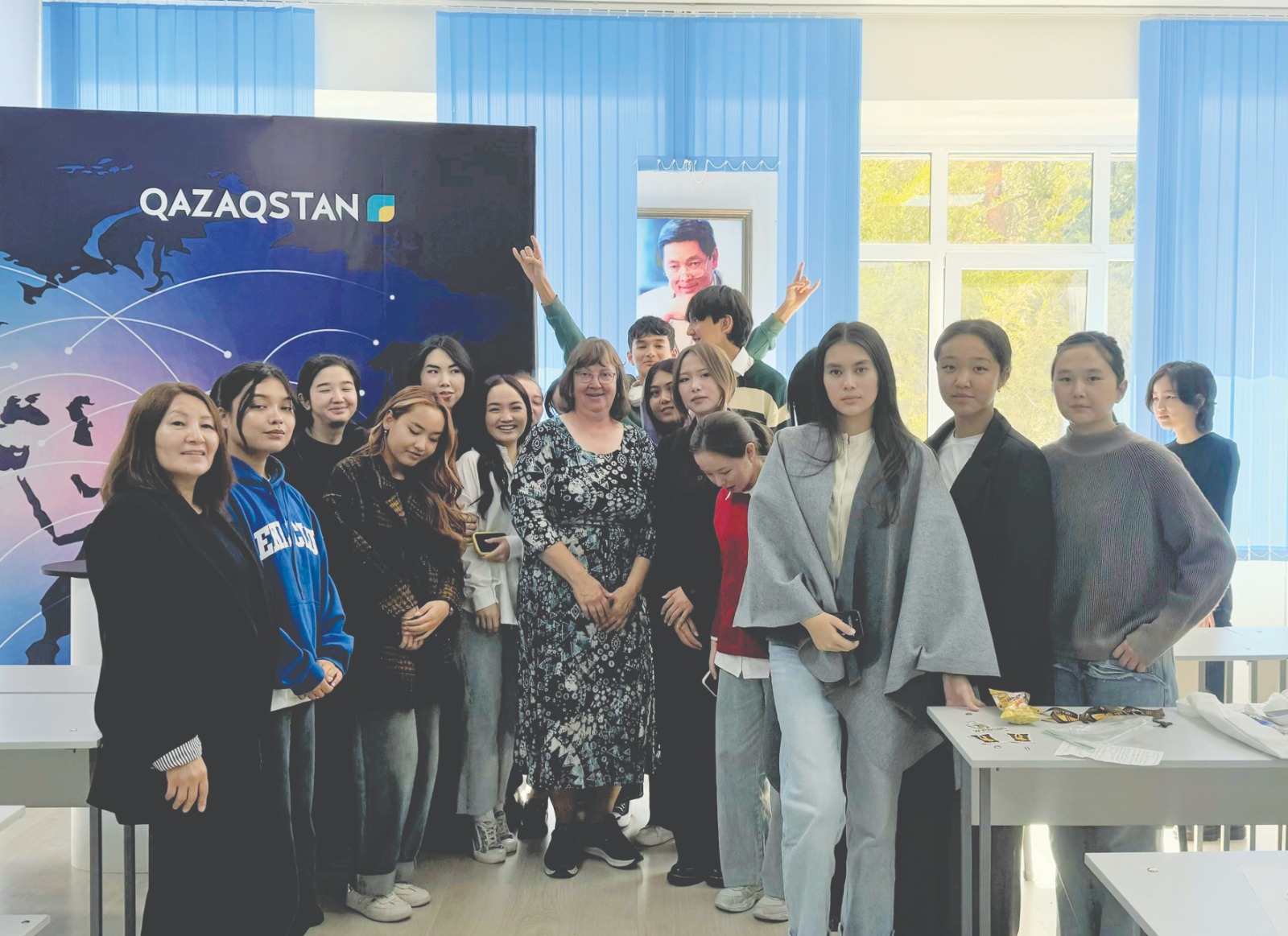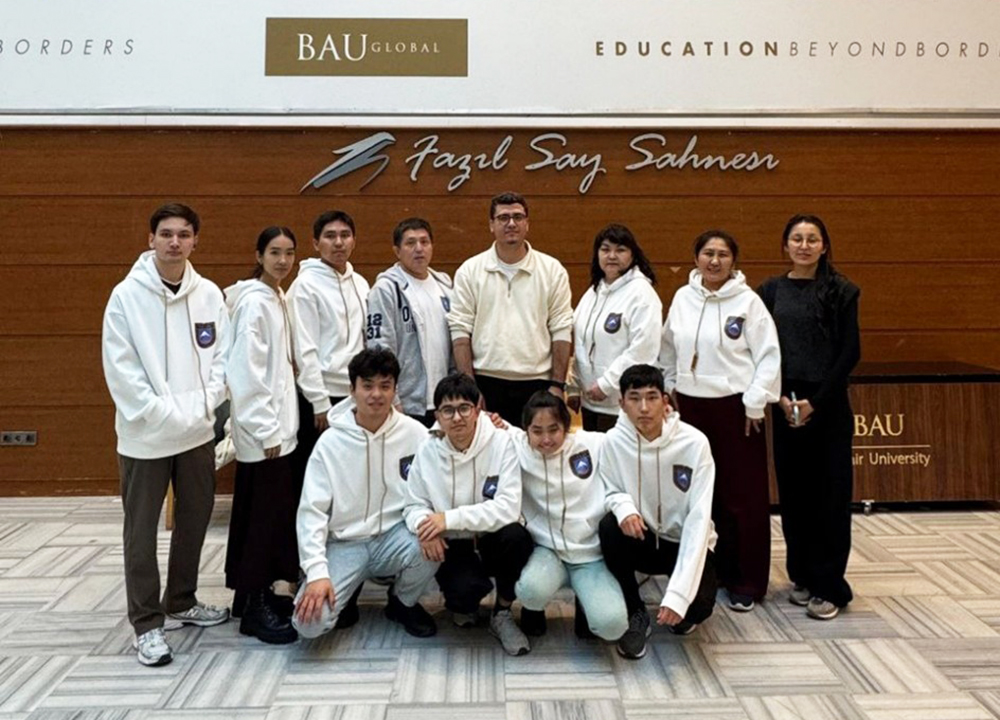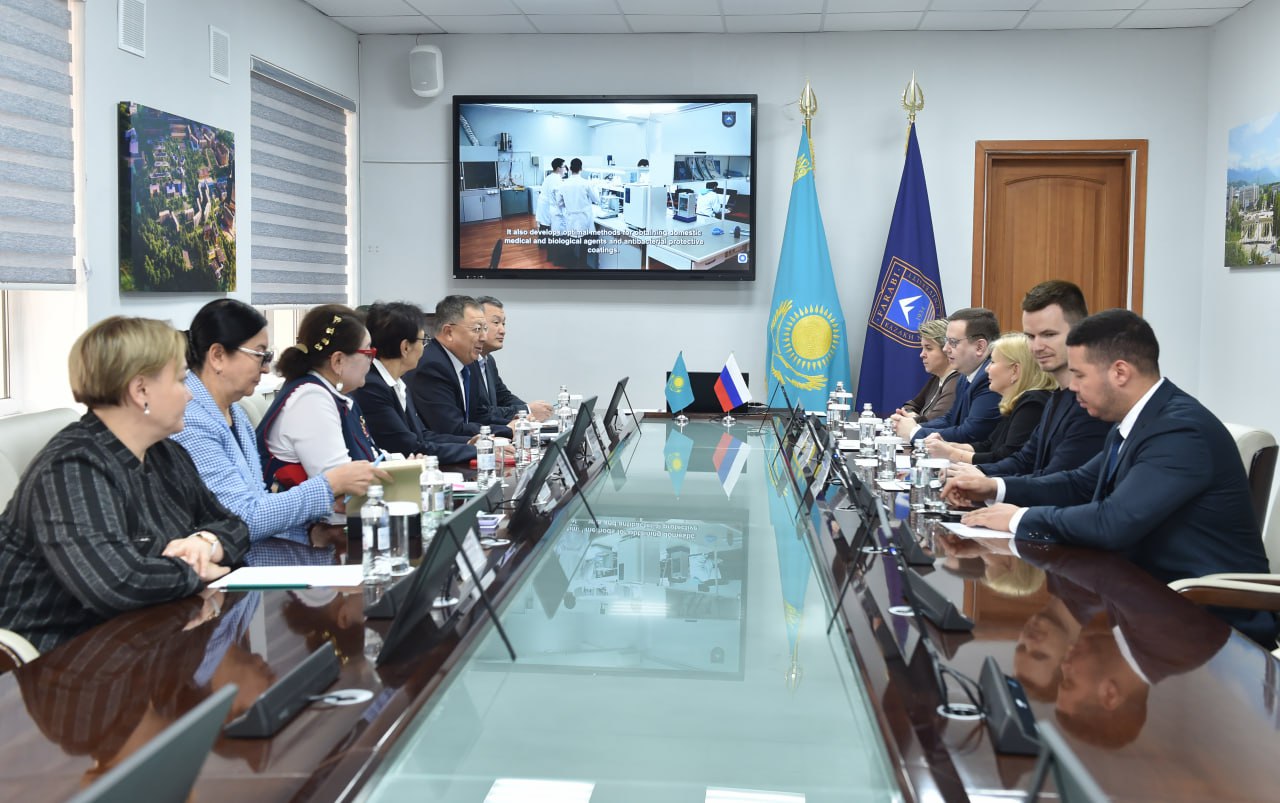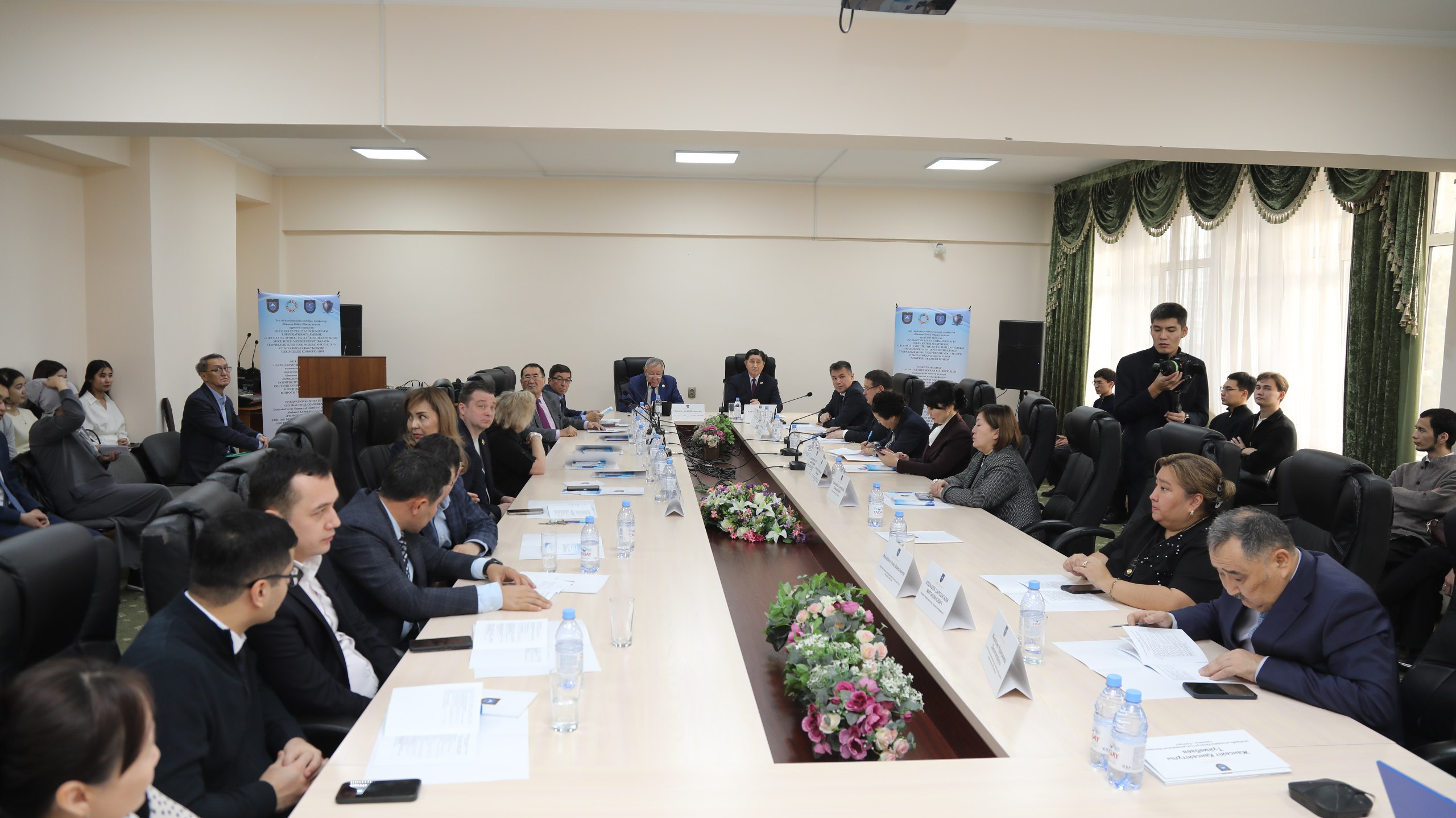Ethical PR should not lie about the organization

Dr. CINDY PRICE SHULTZ, professor of the University of Wyoming
Since 2012, the Faculty of Journalism at al-Farabi Kazakh National University has collaborated with the Communication and Journalism Department at the University of Wyoming. As part of this partnership, Dr. Cindy Price Schultz made her first visit to Kazakhstan, funding the trip with her own resources.
She delivered a guest lecture to undergraduate and graduate students at the Faculty of Journalism and conducted research on the topic "Business Models of Digital News Organizations in Kazakhstan." Additionally, she signed an agreement to further mutual cooperation.
Cindy Price Schultz is associate professor and former head of Communication and Journalism at the University of Wyoming. Her research emphasizes media management, especially online news. Price Schultz published an investigation of US digital news business models, and is studying digital news in Kazakhstan. She is an editorial board member of International Journal on Media Management and reviewer for several journals, including Journal of Media Economics
and Journal of Media Business Studies. She teaches public relations and advertising, and is former head of the Media Management, Economics, and Entrepreneurship Division of the Association for Education in Journalism and Mass Communication.
We interviewed her and this is what Dr. Cindy Price Schultz said:
1. WHAT IS THE DIFFERENCE BETWEEN U.S. AND KAZAKHSTAN UNIVERSITIES? COULD YOU TELL US ABOUT GRADUATE AND UNDEGRADUATE PROGRAM OF YOUR UNIVERSITY?
There are several differences between Kazakh and US universities that relate to culture, such as the incorporation of collegiate sports, theater, and music into the weekly activities that students can participate in and attend, among other things. But from an academic perspective, Kazakh students that I have seen are eager to learn and interested in the topics my colleagues and I were discussing, just as many American students I teach.
Our undergraduate program has two majors: communication and journalism. The communication major is broader, while the journalism major is more applied. What that means is the communication majors are required to take theory-oriented and general communication classes while the journalism students take classes that specifically required journalism-oriented skills sets, such as investigative reporting or graphic design, among many choices. However, the communication majors can take journalism classes and vice versa. At the master's level, our degree is in communication, but students can choose an emphasis in mediated communication, which is more closely related to journalism, or human communication, which is more theory oriented. Both require a written thesis or professional project at the end of the two-year program.
2. HOW DO YOUR STUDENTS GET A JOB OPPORTUNITIES AFTER GRADUATION?
Many students at the University of Wyoming work during their schooling so they have the opportunity to make connections with potential employers. Journalism students are required to do internships, which are jobs that teach them work-related skills while they are still in school. Another way to get job opportunities is through networking, such as talking to guest speakers in classes, going to events in the community, or attending lectures and talking to the speakers afterwards. Some also connect to employers through online outlets, such as LinkedIn or Instagram.
3. TODAY A “NEW-MODEL” JOURNALISM; PR EDUCATION IS BEING BORN. WHAT DO YOU THINK ABOUT THE DEVELOPMENT OF JOURNALISM; PR EDUCATION IN THE WORLD?
I was a professional journalist before I became a public relation professional and that was about 30 years ago, so in the United States, the trend of public relations and journalism integration has been going on for some time. I believe it is important to start a public relations education by learning about journalism because PR includes good storytelling. Also, ethical PR should not lie about the organization. Yes, you want to present the best side of the organization, but in a truthful way. I worked in PR for five years for a university and because of my journalism background, news organizations appreciated my stories because they were well written and talked about excellent research by professors or interesting events that students were doing. In other words, the journalistic principles that students learn should help PR practitioners be more ethical and tell interesting stories.
4. COULD YOU TELL US ABOUT MASS MEDIA RESEARCH THEORY AND TENDENCY OF MEDIA STUDIES?
There are numerous theories in media research, so researchers should start their inquiries by doing a literature review to see what other scholars have done before regarding the topic they want to study. When looking at these studies, the researcher can see different theories applied. Those theories can then be used as a guide for a current study. I personally have used framing theory in many of my research studies. According to Honorata Jakubowska (2017), the framing process occurs from “the choice of words and phrases, choice of sources, repetition and highlighting of some issues and omission of others” (p. 69). Frames can influence how audiences feel about societal issues and policies. In other words, I care about how topics are presented to the public and how that influences the perceptions that the readers and viewers of the information have about the topic.
5. AS A RESEARCHER COULD YOU SHARE ABOUT YOUR RESEARCH EXPERIENCE?
As I mentioned above, I am not as focused on a specific topic as I am about the theory related to many different topics. Therefore, most of my publications have integrated framing theory. My other focus has been on media management and how to effectively manage online news organizations. I am a member of the World Media Economics and Management organization that is scheduled to have its next conference in Warsaw, Poland in May.
6. OUR UNIVERSITY BECOME A RESEARCH UNIVERSITY. COULD YOU GIVE US ADVICE HOW TO PRODUCE QUANTITATIVE (EMPIRICAL) RESEARCH: DESIGNING, COLLECTING DATA, THEORIZING, AND PUBLISHING IN AMERICAN OR EUROPEAN ACADEMIC JOURNALS?
Many American and European journals focus on quantitative research that relies on statistical analysis to generalize findings from the sample that the researcher has conducted to a larger population so the data can be applied at a larger scale. This often involves questionnaires, experiments, or content analyses that incorporate much data and represent that populations that were studied. Then that data needs to be statistically analyzed and presented, often in table form, so readers of the journal articles can see what aspects are important to the topic studied. The best way to see what type of theories and research designs are important in American and European journals is to read articles from those journals. I often go to the websites of different journals I want to submit my research to and read articles, so I understand the ideas that are important to that publication. Sometimes I reach out to the authors of the article and email them to understand more about how they conducted the study. Their email addresses are often listed in the publication.
7. YOUR OPINION ABOUT HOW TO DEVELOP OUR RESEARCH/ACADEMIC COLLABORATION BETWEEN OUR UNIVERSITIES?
The Communication and Journalism Department at the University of Wyoming has been collaborating with Kazakhstan National University for almost 13 years. During that time, Dr. Karlyga Myssayeva and others have worked primarily with Dr. Michael Brown from Wyoming to create publications. Additionally, close to 40 master's and doctoral students have done internships at the University of Wyoming. The purpose of my trip was to develop a connection for the future, as Dr. Brown has retired from UW. I am also interested in ways that UW students could come to Kazakhstan for a short-term course or potentially a semester in the future.
8. WHAT IS YOUR IMPRESSION OF KAZAKHSTAN?
I enjoy the people of Kazakhstan. They have been so friendly and hospitable to me. That is my favorite part. But I also love how important nature is to the country. Where I live in the United States is mountainous and focused on the outdoors, so I have been very fortunate to go into the mountains by Almaty and to Burabay north of Astana so I could see the beauty of Kazakhstan. I also enjoy that parks and trees are incorporated into many parts of the city. It makes it seems like you are in the country even through there are thousands of people around.
9.WHAT WERE THE RESULTS OF YOUR VISIT?
I believe my visit to Farabi University was one of the most successful trips I've had. During my stay, I had the opportunity to explore Kazakhstan, enjoy the breathtaking Almaty mountains, and take part in a cultural tour of the country's new capital Astana. Additionally, I worked on our project focused on the development of online journalism in Kazakhstan. As a result, we submitted our research paper, “Moving Journalism in a New Direction? Business Models of Digital News Organizations in Kazakhstan”, to the World Media Economics and Management Conference in Warsaw. The study examines how the media landscape in Kazakhstan has evolved since gaining independence over 30 years ago. While some media managers have transitioned from government-supported models to producing independent news, the research specifically explores how they adapt to the digital news environment and sustain successful journalism businesses.
The study involved qualitative, semi-structured interviews with 12 Kazakh journalists who manage or operate digital news organizations. It sought to answer the question: How do culture and location influence the strategic responses of digital news organizations to changes in the journalism industry?
In summary, Kazakhstan presents a rapidly growing space for digital news organizations, yet there has been very little research on this topic in Central Asia. This study offers an important starting point for understanding journalism entrepreneurship in the region and how cultural knowledge is leveraged to adapt to industry changes. I genuinely believe this research will attract more attention from academics and spark further interest in the field.
10. ANYTHING TO ADD?
I am glad I came to visit and I look forward to talking to my students and colleagues back at the University of Wyoming about this country.
Karlyga Myssayeva,
PhD, Associate professor,
Al-Farabi KazNU
Other news


